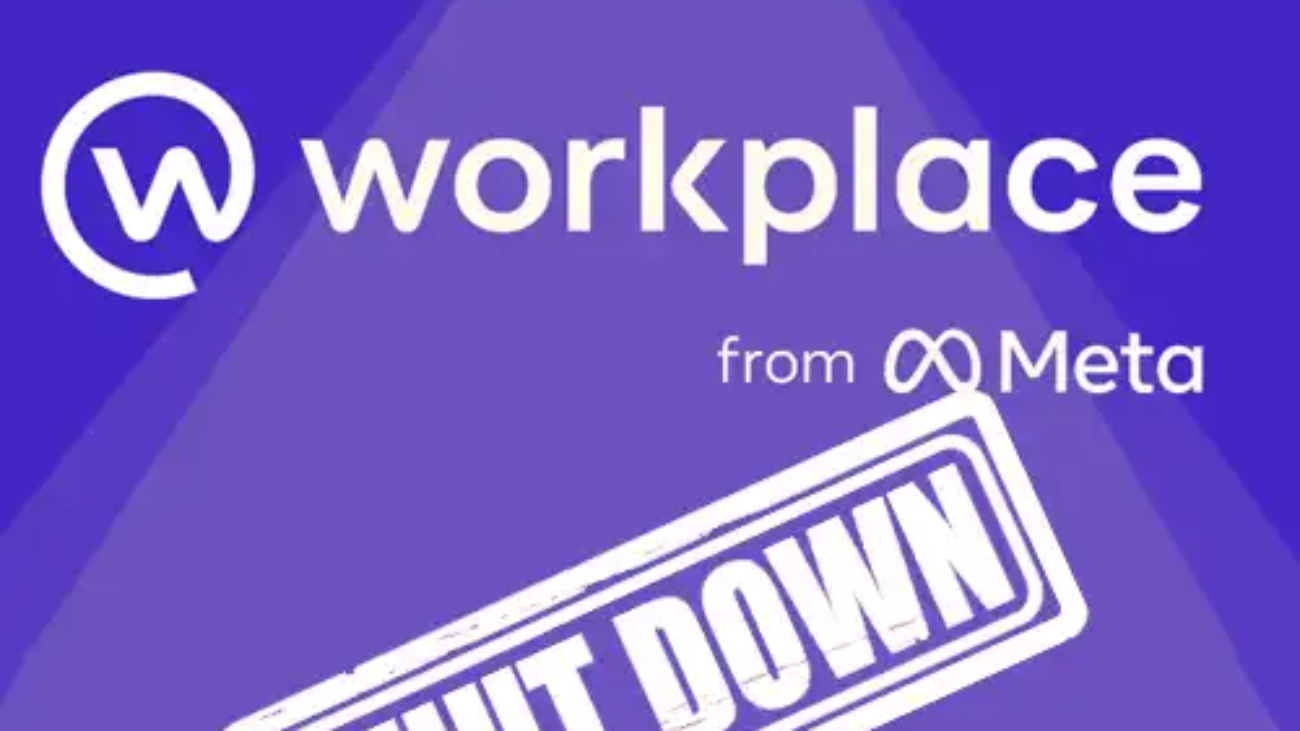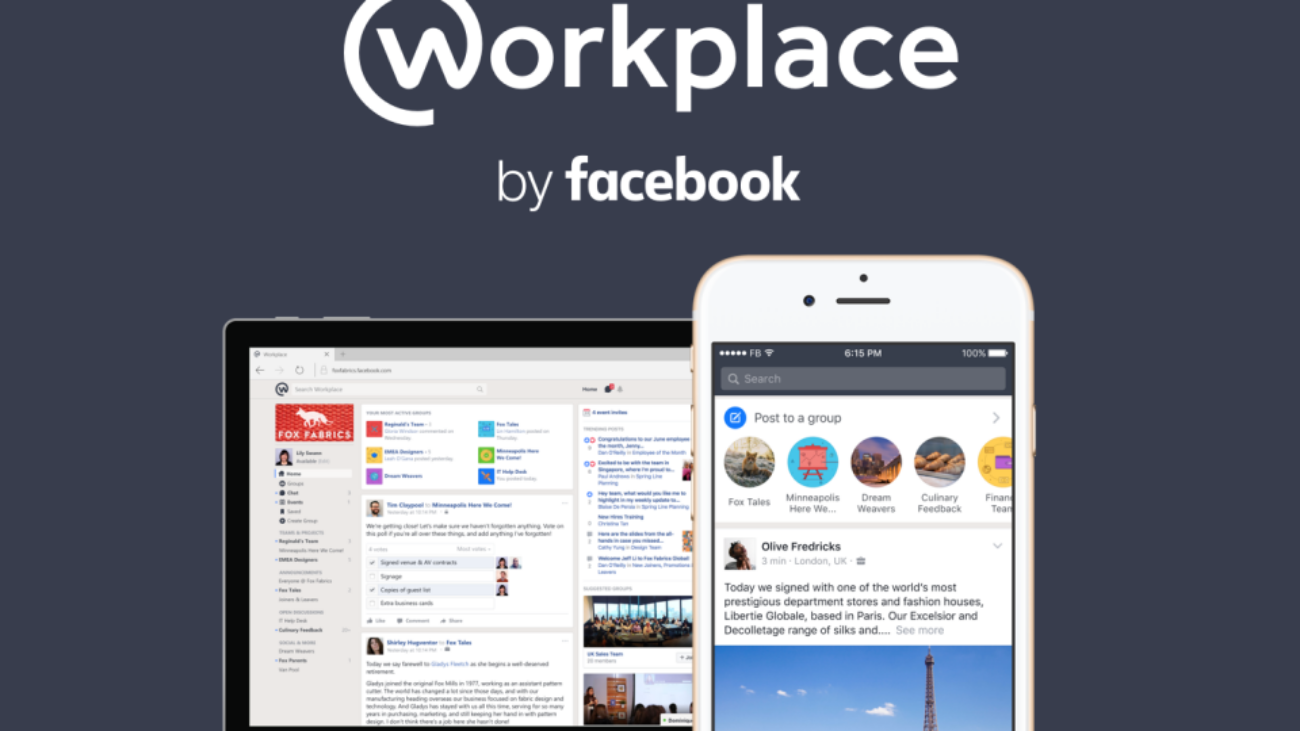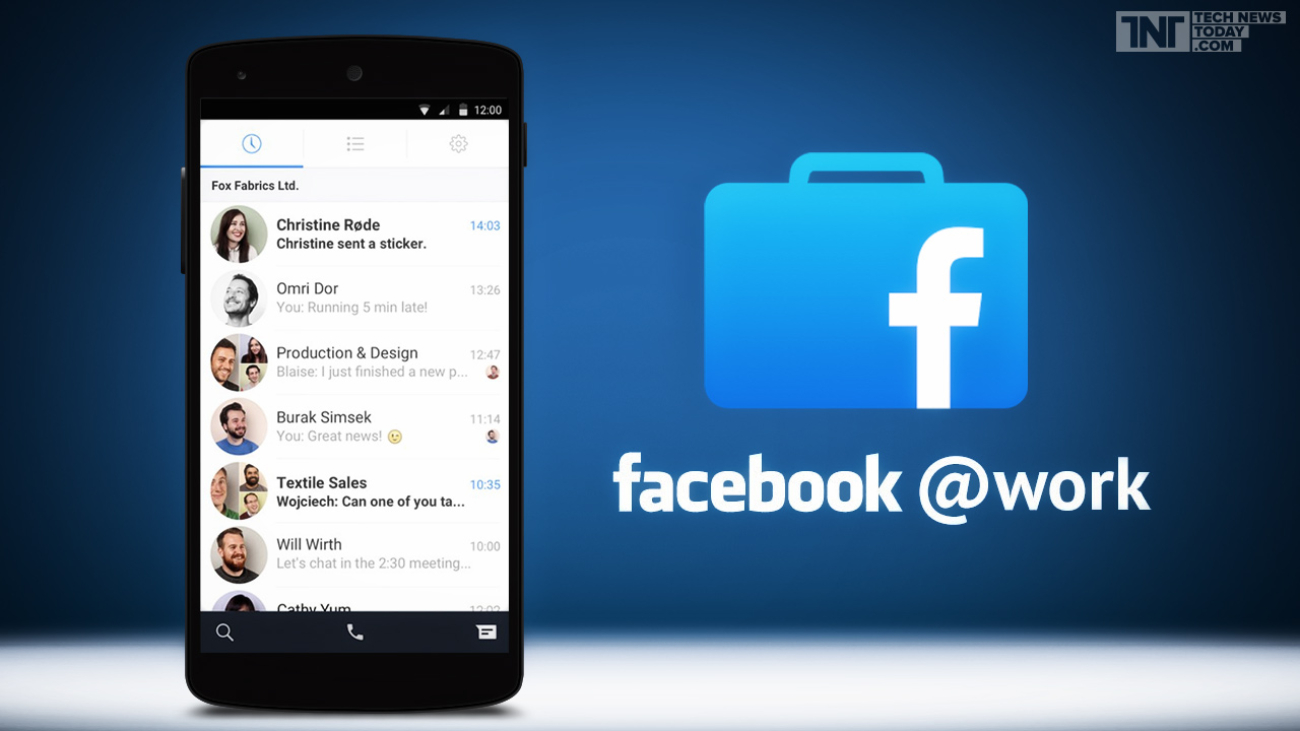If your organisation is using Meta’s enterprise social network platform, now is the time to consider your options
It was announced earlier today that Workplace from Meta, launched all the way back in 2016, is going to be shut down for good in 2026.
At this point there is is no official announcement from Meta , but from an internal memo and company spokespeople offering comment to journalists, it was shared that the only preferred migration partner is Zoom-owned Workvivo, an employee engagement app, headquartered in the Republic of Ireland. Despite no official announcement at this stage from Meta, Workvivo has already stated that Workplace from Meta is discontinuing and that they are the only official migration partner.
Workvivo have stated that customers transitioning off Workplace will also be offered other Workvivo functionalities at no extra cost.
As you may be aware, I’ve spent a fair bit of my time the past 2 years deploying a new employee communications platform based on Workvivo at a global financial services organisation, and I have to say that I’m delighted at this early suggestion that Meta have been working with Workvivo to build an automated migration tool.
John Goulding, CEO and founder of Workvivo has stated:
We know that the news today may be disruptive for Workplace from Meta customers, but we’re so excited about the opportunity to support and help them. Meta has made a huge impact in this market, and we believe that Workvivo is the natural choice for Workplace from Meta customers to transition their employee experience platform.
It’s our top priority to support customers through this transition, and our team is working to make this process as frictionless as possible. We put our customers first, and this will be no different for the Workplace from Meta customers. We are excited to welcome Workplace from Meta customers into our incredible customer community and see the amazing things they can do with Workvivo.
Workplace from Meta will remain as is until August 31, 2025, then turning into read-only and free, and being completely decommissioned by June 2026.
Reuters have reported that Meta’s primary reason for shutting down Workplace is to allow a doubling down on the metaverse and artificial intelligence technologies. A spokesperson for Meta told Reuters:
We are discontinuing Workplace (to) focus on building AI and metaverse technologies that we believe will fundamentally reshape the way we work. Over the next two years, we will provide our Workplace customers the option to transition to Zoom’s Workvivo product, Meta’s only preferred migration partner.
Any large-scale migration from one platform to another is never frictionless. Automated content migration tools ease the technical conversion, but platforms have different information architectures, capabilities and user experiences, and so even when the content is across, there’s usually a significant volume of tidying and finessing to be done. Then, as ever, the people journey is more critical than the technological one. Communications, training, and change management will all be key.
Migrating to Workvivo from Workplace from Meta is likely to be the most popular option – there are obvious similarities in functionality, and Workvivo’s product can be community driven. However, Workvivo is a broader employee communications platform (with features such as newsletters and digital signage), whereas Workplace is better described as an enterprise social network (as you’d expect, given it was based on the consumer Facebook platform). In speaking to many of Workvivo’s customers during the procurement process and at events, there are many customers for whom publishing is primarily a managed internal communications task, with more limited and contained social communities. Whereas on Workplace by Meta, the social channels tend to overwhelmingly dominate the platform.
For any customers facing the closure of their Workplace platforms, I’d firmly suggest that extensive due diligence is carried out around the best solution for migrating from Workplace, adding a new platform, or considering other options and other solutions. Whilst I can confirm that Workvivo is a great solution, it does have its limitations in specific areas (compared to Workplace and other competitive employee communications platforms). It wouldn’t make any sense to jump straight into the automated migration option without considering those pros and cons in significant detail.
On the other hand If you are a Workplace from Meta user, think of the announcement as an opportunity to stop and assess the channel’s effectiveness, and future alternatives and options available, before jumping into decisions. It could be that your organisation already has more appropriate options for your use case.




